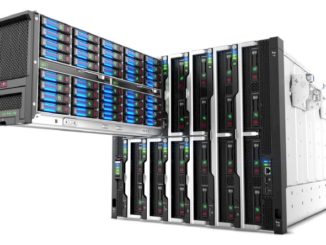
In this fast-paced global economy, enhanced speed, productivity, and intelligence are more important than ever to success. Machines are now being leveraged to augment human capabilities in order to drive business growth or accelerate innovation. Businesses need leading-edge IT to achieve superhuman levels of performance.
Today’s enterprises and organizations are deploying high performance computing (HPC) technologies to reach the new frontier of IT intelligence. Backed by HPC solutions, users can leverage artificial intelligence (AI) tools to predict and solve problems in real time, streamline IT operations, and drive more informed, data-driven decision-making.
Machine learning, a powerful subset of AI, is helping organizations across all sectors harness the full power of their data. This is particularly true in the healthcare industry where organizations must rapidly process data in order to derive critical business and patient insights, and employing actionable intelligence is key. The ability to perform real-time data analysis on rapidly growing medical datasets is the difference between delivering better patient care, streamlining medical research, and empowering the next medical breakthrough, or losing out to the competition.
Similar to the neural networks of the human brain, cognitive computing utilizes sophisticated hardware, software, and learning algorithms to examine data from a variety of sources—such as patient backgrounds, clinical research trials, and electronic health records—in order to identify patterns and utilize predictive analytics to streamline future decisions.
For healthcare organizations, machine learning is a vital approach to accelerate research and analytics innovation in a cost-effective way—this includes discovering links between drugs and diseases, and even determining which therapies and treatments will produce the best patient outcomes. According to Healthcare IT News, machine learning applications are optimizing medical research while driving down operating costs. When the Human Genome Project first began in 2003, it cost $3 billion to sequence an entire genome. In 2007, a different research group spent $2 million on DNA sequencing. Today, AI techniques have reduced the cost to $1,000, and may soon reach $100 per genome.
The only drawback with this approach is, learning takes time.
Accelerating Insight With HPC Solutions
HPC technologies are transforming the healthcare landscape as we know it. In order to reduce time to insight, medical researchers need high-performance solutions that are expressly designed for AI operations, without exhausting their IT budgets. Many healthcare organizations are investing in GPU-accelerated computing to speed up machine learning, data analytics, and business applications. Nvidia’s GPU computing technologies leverage massively parallel GPUs to provide dramatically higher throughput for compute-intensive workloads.
In a recent study conducted by the World Health Organization, tuberculosis is one of the top ten causes of death worldwide, responsible for 1.8 million fatalities in 2015. Many of those deaths occurred in lower-income countries with limited radiological resources and IT expertise. However, researchers are striving to reduce these numbers with a new approach combining chest X-rays and AI applications. Thanks to GPU computing, researchers have created a model based on inputs from 1,000 public tuberculosis images, and the model can run 40X faster in order to diagnose, treat, and even prevent tuberculosis cases.
Powered by robust workload optimized platforms for AI such as the HPE Apollo 6500 System, dense GPU environments are positioning healthcare organizations to achieve optimal efficiency, productivity, and performance—not simply to analyze and act on today’s rising data volumes, but to support all future workloads and applications.
When it comes to fueling the next medical discovery, researchers rely on technologies to operate as quickly and intelligently as possible.
Vineeth Ram is vice president of HPC and AI segment and data center experience marketing at Hewlett Packard Enterprise. To learn more about how AI and machine learning capabilities are transforming medical operations, follow me on Twitter at @VineethRam. You can also visit @HPE_HPC and @NVIDIADC for the latest news and updates on computing in healthcare.





Be the first to comment